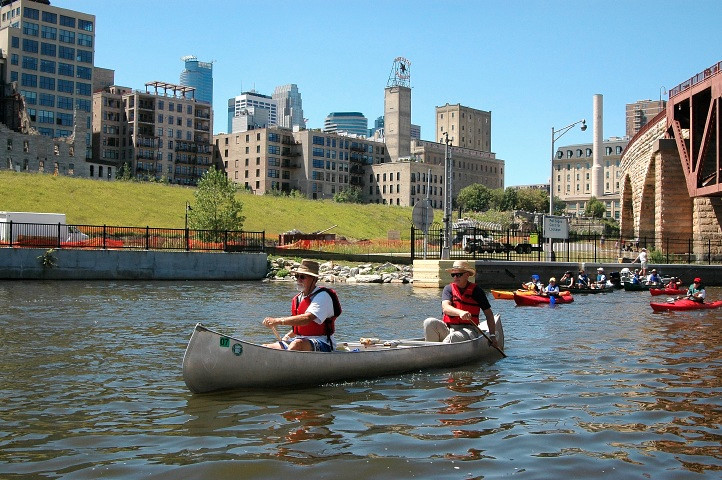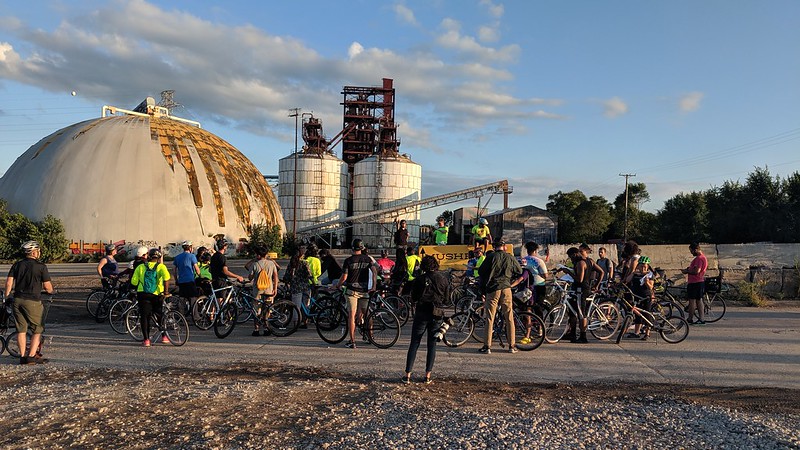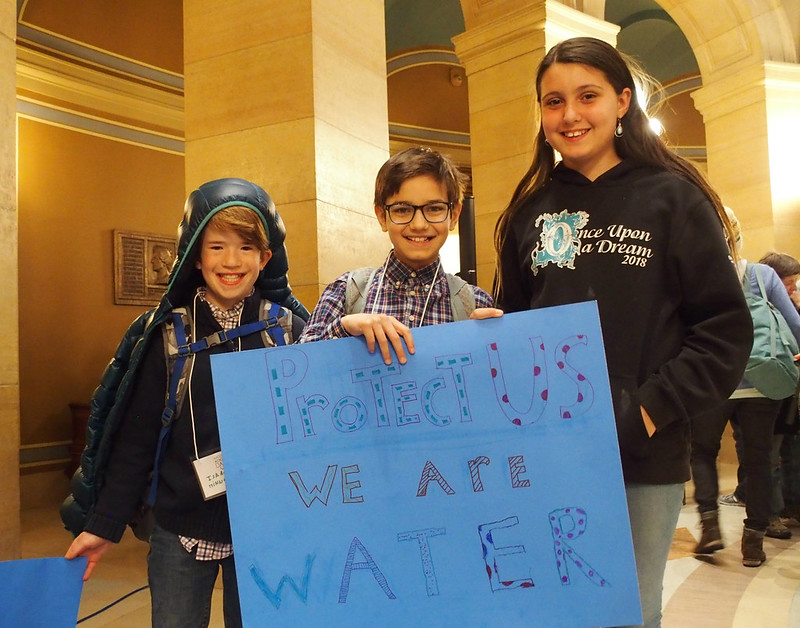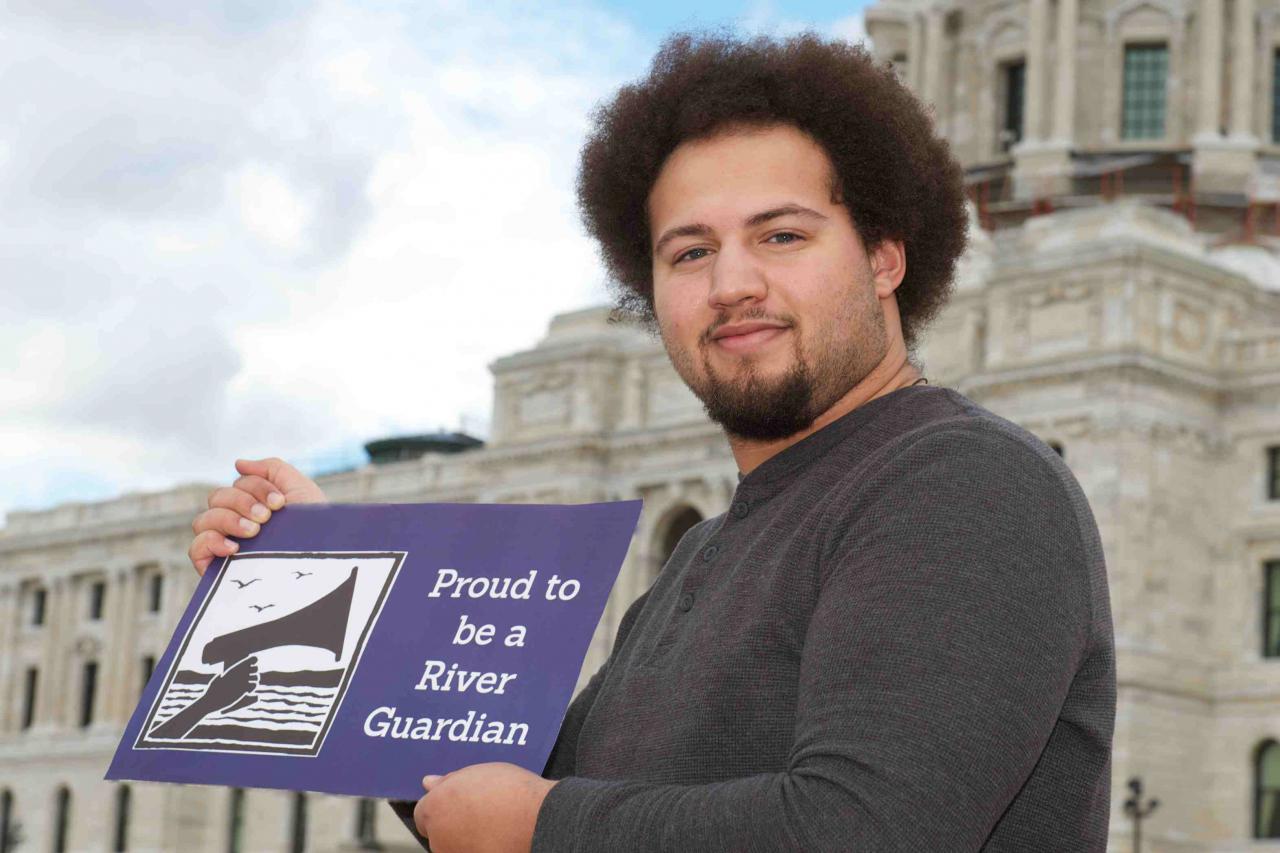FMR's river corridor work: Celebrate 2019, join us in 2020
At FMR, we believe the Mississippi River belongs to all of us, and everyone deserves equitable access to, enjoyment of and benefit from the river.
Our river corridor program works within river communities to provide leadership, technical assistance and expertise in grassroots advocacy. We help ensure that the essential values of public access, scenic views, historic preservation and environmental quality are respected as these communities turn toward their riverfront.
Here are a few of the ways our river corridor work made a difference for the Mississippi River in 2019.
Advancing Critical Area protections
After working for over ten years to bring about new Mississippi River Corridor Critical Area (MRCCA) rules, final implemention is on the horizon. Starting in 2020, every city and township within the 72-mile metro river corridor will be adopting science-based ordinances that protect the river's ecological, recreational and scenic qualities.
This past year we worked closely with the Department of Natural Resources as it developed the model ordinance that most communities will use as the basis for their work. The model ordinance is now strong, clear and easy for cities and townships to use.
In 2020, each community will have opportunities to strengthen its ordinance beyond the basics, in areas that might be of particular local concern, whether that be building height specifications or open-space protection.
River Guardians, watch your email in the coming weeks for workshops, online resources and opportunities to get involved in your city's ordinance adoption process.
If you're not yet a River Guardian, sign up today to stay in the loop and join this powerful group of advocates. Our River Guardians took over 650 actions in 2019. You can help build even more power in 2020.

Influencing development plans
River corridor program staff participated in nearly 30 different committees, coalitions and planning processes throughout the entire corridor. That means we were able to weigh in on park master plans, large riverfront redevelopments, invasive carp prevention, and lock and dam disposition. We wrote over 20 detailed comment letters on development proposals, park plans and riverfront policy issues.
Sometimes this work yields relatively quick outcomes. In 2019, FMR secured additional public riverfront parkland at the Island Station redevelopment site in St. Paul by advocating with the city and developer.
Elsewhere in St. Paul, we used several engagement strategies, such as speaking with park-goers and participating in community events, to recruit over 130 community members specifically interested in advocating for study and cleanup of a floodplain hazardous waste dumpsite, Ford Area C. FMR’s advocacy has led to expanded monitoring of the site as the first step in determining what remediation is necessary. (If you're interested in this issue, join us for a community meeting on February 20!)
Another win for the river last year involved organizing and educating Lilydale residents and elected officials to take action on the proposed River Bluffs Center redevelopment. Together we were able to stop a proposal that would have substantially damaged a delicate bluff. City leaders have directed the developer to design a project that better complies with the height, setback, bluff protection and stormwater management practices that protect the river.
We also continued to build community awareness, power and partnerships for the Upper Harbor Terminal redevelopment in North Minneapolis, securing positive changes to the concept plan. We hope to see more community input and equitable outcomes incorporated into the more detailed development plan, which will be released in April 2020.

Pursuing equity
We approach all riverfront issues by asking, "Who benefits?" The reality is that while none of us built the Mississippi River, some of us benefit from this amazing asset more than others.
FMR is committed to the ongoing work of becoming culturally competent, welcoming and inclusive of all people both within our organization as well as in the range of issues and challenges that we engage in. (Read more about our commitment to equity)
In 2019, our River Corridor program lived out this commitment through expanded engagement with low-income communities, communities of color, tribal communities and environmental justice communities.
We prioritized our work in neighborhoods with inequitable riverfront access, including St. Paul's East Side and the Above the Falls region of North and Northeast Minneapolis, and advocated for park investments to be directed towards these communities.
We consulted with neighborhood groups and affected residents before responding to plans ranging from the Indian Mounds Park trail realignment to proposed riverfront developments.
We championed advocacy issues critical to the Mississippi River and those who live around it: bike, pedestrian and transit infrastructure; values of public access; gentrification and displacement; and affordable living.
We have so much more work to do: for everyone who cares about the river, and particularly in partnership with those who continue to experience unjust treatment at the hands of our community's institutions. In 2020, we'll continue to learn and act on these issues.

Join us in 2020
You helped make this work possible! Our River Guardians, volunteers, members, and donors all play critical roles in keeping our great river vibrant, wild, and accessible to all. Thank you!
If you want to hear about future opportunities to be involved in protecting your community's riverfront, become a River Guardian. You'll receive emails from us when opportunities to advocate for riverfront development and other river-related issues arise, plus invitations to educational happy hours.
